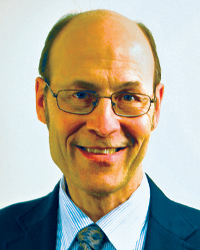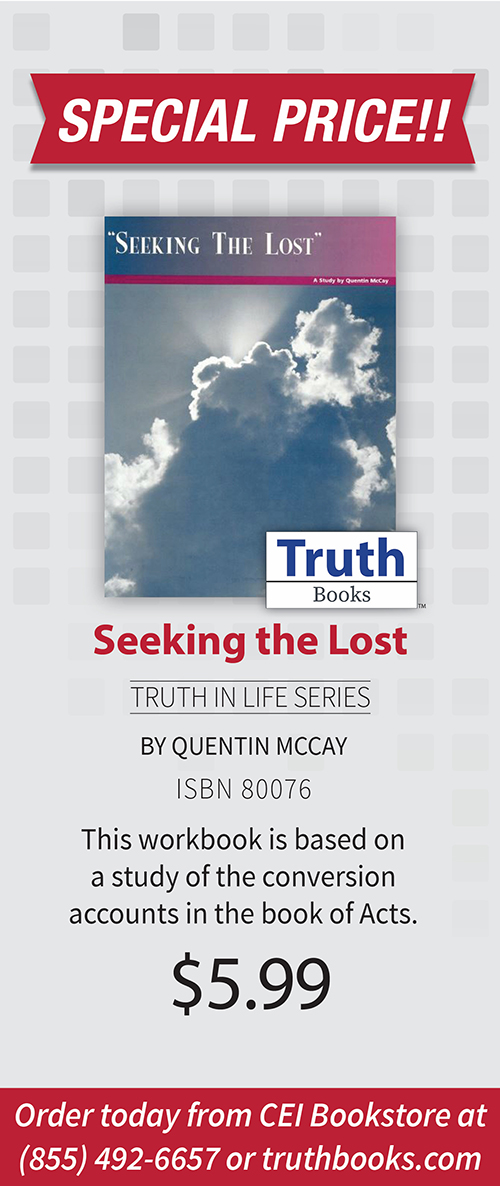

by Steve Wallace
Synopsis: Offering a brief account of his efforts to preach the gospel in different countries, Steve shares valuable advice to those who are evangelistic-minded.
Thirty-five years ago, as a young Christian and preacher, I was persuaded against my wishes to move to Germany to preach the gospel. The request had come from Christians who were part of the American military presence there. When I got off the plane and got my luggage, I remember having my Bible laying on top of everything on the baggage cart since that was my reason for coming. Many years and countries later, I offer what insight and advice I can along with some experiences.
If you are going to work in a European country, you must prepare yourself mentally and spiritually. You should learn the language of your country of choice. Securing or producing literature (tracts) in that language is recommended. Producing tracts to deal with specific subjects can be helpful. If you choose to have literature translated, it must also be proofread. This means that a Christian must have someone other than the original translator read the tract back to him in English and correct the mistakes, which are usually numerous no matter how skilled the original translator was. This is a time-consuming, costly, tedious, but necessary process.
Reaching Europeans with the gospel is challenging. They are generally friendly, and many will talk with you when they have time. However, they can be abrupt in rejecting an invitation to discuss or study the Bible. Secularism—"indifference to or rejection or exclusion of religion and religious considerations" (Merriam-Webster.com)—is rampant. Serious interest in the Bible is very rare. Some Protestant religions are active, and contacts can be made from among their ranks. Being prepared to study evidences can be helpful for atheists or agnostics. After the fall of the iron curtain, doing street work (setting up a table with literature) initially brought many contacts in the eastern European countries. However, interest all but died out with time.
In contrast to native Europeans, immigrants are often more open to the Scriptures. There are many of them in some of the existing churches. At least one church seems to consist entirely of immigrants. Protestants claim success in reaching Islamic migrants.
Socializing in Europe commonly involves alcohol. During our time in Germany, we declined countless bottles of wine or complimentary drinks after meals. Alcohol is common in candy, pastries, and even desserts. Several times I left the table or present company, so I could empty my mouth of it (1 Pet. 4:3). It is best to purpose in your heart beforehand to never swallow alcohol (Dan. 1:8).
There is a good number of institutional churches in Europe. Like such brethren in the U.S., they need to be taught, and brought out of their error (2 John 9-11).
Your work in a foreign country will include preparation for classes, sermons, or studies with contacts, just as it would anywhere else. Do not forget to study for your own edification. When you are far from all you call home, only you can maintain your spirituality (2 Tim. 2:15). We are very fortunate in our times to have reference works available in digital format that fill in for personal libraries left behind in the USA. (Of course, much of this paragraph applies to preachers wherever they are.)
A few final unrelated things: Accommodations can be compact in Europe; many familiar foodstuffs are unavailable; the incidences of public nudity, on billboards, television or in real life, are disturbing.
After being invited to come to the Philippines countless times (by brethren there with whom I'd corresponded), I finally went there in the spring of 2001. The work in Lithuania, which I had been doing part-time for almost a decade, had slowed and interest in our work there was waning. The Philippines were indeed a breath of fresh air. Churches were everywhere, and interest in the gospel was high. American preachers had been working there on a part-time basis for a long time. Brother Ron Halbrook, with whom I was traveling (along with his son, David, and Don Hastings), was already quite experienced there and had prepared a grueling schedule, but it was all fine, because we were able to do what the Lord wants preachers to do—preach the gospel (Matt. 28:18-20; Mark 16:15-16). Many obeyed the gospel, multitudes heard our preaching, and I made many new "preacher friends" to boot!
After returning to do my normal part-time work in Lithuania a couple more times, I decided to start spending that time working in the Philippines. In my first trips, much time was spent working with churches in many different locations. We then started organizing lectureships for preachers. (Somewhere in those times, PowerPoint and multimedia projectors were introduced to the work there.) This allowed local preachers to grow in their knowledge of the Bible and be more effective in their own work. Their preaching of our material in their respective congregations also resulted in it being heard more widely than it otherwise would have been. Over the years, lectures were organized on some different subjects. I remember one that Ron and I conducted on "The Home and Family," which was particularly well received and appreciated. (Ron Halbrook is the one to contact about the work in the Philippines.)
In 2006, Chella Thangam, a brother from India, was studying in Germany, and visited the church in Ramstein where I was then preaching. He insisted that I come to Chennai, a huge city in south India, to preach. Our conversations told me that he (along with the church where he worshipped) was under the influence of liberal teaching. Hence, I felt compelled to go to Chennai. The group of preachers who came to my lectures in India was initially very receptive. However, after repeated visits, some serious sticking points emerged, and they were not budging. Chella stood with the truth and, later, some others did also. Chella organized venues for me with brethren in other parts of south India, one of which was as momentous as it was memorable.
February 6, 2012, was the first day of a three-day lectureship in the city of Madurai. Twenty-nine preachers attended. All had attended Bible colleges run by our liberal brethren. Gospel preaching can be exciting, and this was the most exciting preaching experience I can remember. By the time the lectures were over, two groups had emerged—those who were standing with the truth on institutional issues and those who were not.
A lot has happened since then. More and more doors have opened. More brethren have renounced liberalism. Whole churches have changed and taken a stand for the truth, and, more importantly, preaching brethren have become militant in their stand against institutionalism. My latest trip to India began and ended with me speaking to friendly audiences in church buildings which had been built by institutional brethren. Baptisms continue.
Things we learned, working in Lithuania, pay off in India. Not only are sermons and lectures interpreted, as one would expect, but PowerPoint presentations are also translated into Tamil with the two-fold benefit of ease of initial understanding and the availability of handouts for further study. Commentaries and other Bible reference books and CDs have been given to English speakers among brethren there. Roy Cogdill's The New Testament Church is almost ready to be printed in the Tamil language.
People are people everywhere. There are good people and bad people. Our Lord sent His disciples into the wicked world of His day (Matt. 28:18-20). His words echo down through the centuries to us today—and faithful American preachers have so much to offer to those in other countries!
Author Bio: Steve has worked with the church in Round Lake Beach, IL, for three years. He and his wife, Mary (his much better half), have been married 33 years. He can be reached at alvincarl1@att.net.

